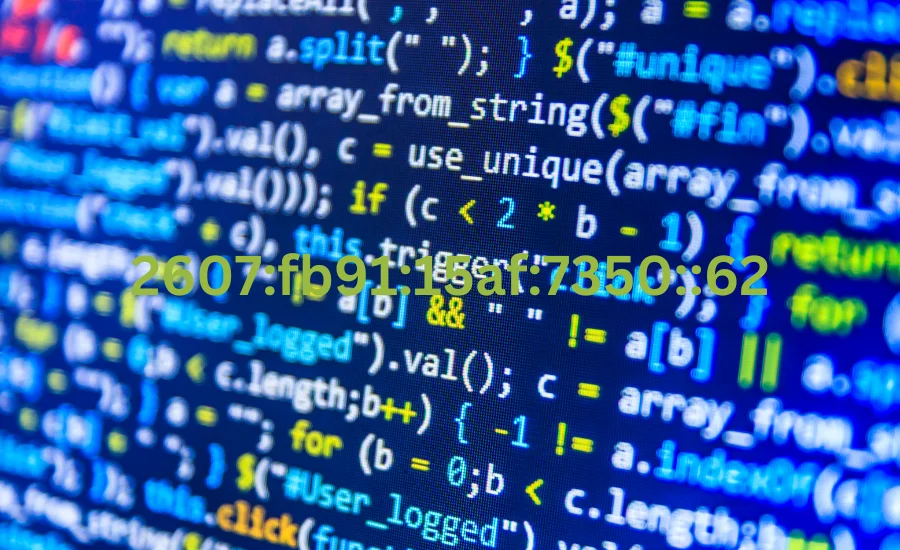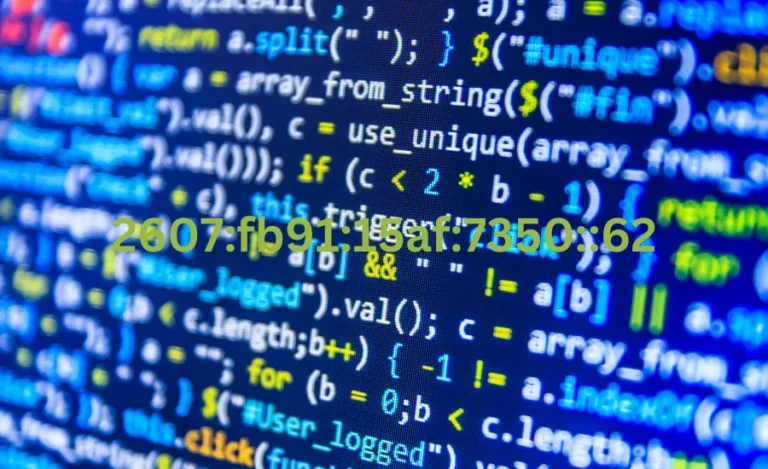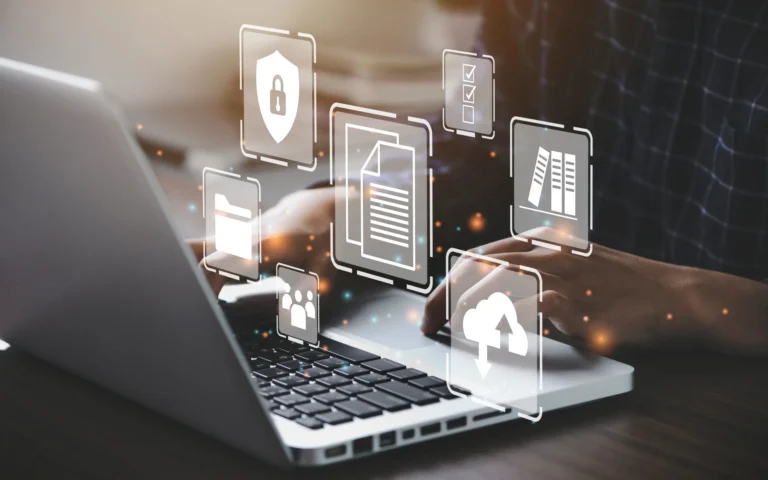
Every device connected to the internet in the digital world has an individual identifier called an IP address. Some of these addresses play more significant roles in putting a signature on online communication. One such interesting example is 2607:fb91:15af:7350::62. But why does this particular IPv6 address merit discussion? IP addresses are confusing at first sight; unwrapping the mysteries behind their functionality shows how they impact daily use in the Internet world.
From an improvement in the security features to seamless connectivity, a study of the types of IP addresses gives an extraordinary insight into this web of everything. Let’s now look at why 2607:fb91:15af:7350::62 will matter in today’s technology:
What is an IP Address and Why it is Important
An IP address, or Internet Protocol address, acts as a digital location for devices connected to the internet. Think of it as your home address but in the online realm. It allows systems to communicate and exchange data effectively.
Each device needs a unique IP address to send and receive information correctly. Without this identifier, routers wouldn’t know where to direct web traffic.
The importance of IP addresses extends beyond just connectivity. They play a crucial role in security measures like geo-blocking and fraud detection. By identifying users’ locations, businesses can tailor their services or protect against malicious activities.
Moreover, IP addresses assist in troubleshooting network issues by pinpointing source problems quickly. Understanding them helps demystify how our favorite websites load seamlessly on demand while keeping our interactions secure.
Difference Between IPv4 and IPv6 Addresses
The two major protocols for device identification over a network are IPv4 and IPv6. So, IPv4 was devised at the beginning of the 1980s, and it had a 32-bit address scheme. That, theoretically, allowed about 4.3 billion unique addresses. At that time, that sounded rather adequate, but once it came to the proliferation of Internet-connected devices, these became seriously insufficient.
IPv6 had been developed to solve this issue, and it uses 128-bit address structure. Therefore, the number of possible addresses increases to an astronomical figure, reaching about 340 undecillion options! This is big enough that every device could have one distinct and not run out of addresses.
Other differences involve routing and security features: IPv6 natively includes IPsec, encrypting the data and making it way more secure than its predecessor ever did.
These contrasts, however, illuminate that the shift of IPv6 from IPv4 is so imperative in today’s fast-evolving digital world.
Understanding the Structure of IPv6 Address 2607:fb91:15af:7350::62
The IPv6 address 2607:fb91:15af:7350::62 has a distinctive structure that sets it apart from its predecessor, IPv4. It consists of eight groups of four hexadecimal digits separated by colons.
Each group represents 16 bits, leading to a total length of 128 bits for the entire address. This vast size allows billions more unique addresses than what IPv4 can provide.
In this specific address, the double colon (::) indicates consecutive sections filled with zeros. This feature simplifies notation and helps in managing lengthy addresses effectively.
Breaking down this particular prefix reveals its allocation details. The first three segments indicate the network portion, while the last segment signifies a specific device within that network.
Understanding these nuances is crucial for efficient networking and troubleshooting in an increasingly connected world.
Benefits of Using IPv6 Addresses
IPv6 addresses bring several advantages that enhance the internet experience. One of the most notable benefits is the vast address space they offer. Unlike IPv4, which has a limited number of unique addresses, IPv6 can accommodate an almost limitless number of devices.
This expansion is crucial as our world becomes more connected. Every device, from smartphones to smart home gadgets, needs its own IP address.
Security features also improve with IPv6. It was designed with built-in encryption and authentication mechanisms that enhance data transmission safety.
Moreover, using IPv6 can lead to better network efficiency and performance. The protocol simplifies routing processes, reducing latency and improving overall speed for users.
Transitioning to IPv6 helps future-proof networks against upcoming technological advancements in connectivity and IoT developments.
How to Find Your Own IP Address 2607:fb91:15af:7350::62
Finding one’s own IP address, especially if it’s in the IPv6 format like 2607:fb91:15af:7350::62, is pretty simple.
To do so in Windows, open Command Prompt by searching for “cmd” in the search bar. After opening it, type “ipconfig” and press enter. In that list, your IPv6 address should show up.
For Mac users, open up System Preferences and head to Network. Click your active connection, and under “Status,” you will find IPv6 address.
Under Linux, just fire up a terminal and type “ifconfig.” You should see your IPv6 details after one of the entries labeled inet6.
Mobile devices have their ways, too. Whether Android or iPhone, there is a way to reach Setting > Wi-Fi or Cellular Data settings which will show information about your network connection.
Each of these techniques offers something a little different in how you’re online and with what unique identifiers, such as 2607:fb91:15af:7350::62.
Common Misconceptions about IPv6 Addresses
Many people believe that IPv6 addresses are only for large organizations or tech-savvy individuals. This isn’t true. IPv6 is essential for everyone, as it accommodates the growing number of devices connected to the Internet.
Another common misconception is that transitioning from IPv4 to IPv6 is complicated and costly. In reality, many internet service providers have already made this switch seamlessly, allowing users to benefit without significant disruption.
Some think that because IPv6 addresses look complex, they are difficult to manage. However, various tools simplify IP address management and help users navigate these unique addresses effortlessly.
There’s a belief that security concerns arise solely with newer technologies like IPv6. In fact, both protocols can be secure when properly configured; it’s more about how each network manages its security rather than the version in use.
Conclusion
Understanding the depth of IP address 2607:fb91:15af:7350::62 opens an entirely new dimension to the way we connect online. This identifier is important for devices communicating over the internet; hence, it is crucial in our digital times.
With the increase in the number of devices that require an IP address, there has been an ever-growing need to transit from IPv4 addresses to IPv6. Due to its longer format and expanded capacity, IPv6 can support more users along with enhanced security and performance. This particular structure of IPv6 addresses showcases those enhancements rather clearly.
It will allow you to find out a bit more about how your network works and will also help troubleshoot issues a little easier. IPv6 is usually thought of as something complex and not at all needed or used; this view is common, but one should not turn a blind eye from the benefits of IPv6.
As technology keeps on evolving, embracing innovations such as those represented by 2607:fb91:15af:7350::62 are what will enable us to work our way through our increasingly connected world without friction. Understanding these aspects helps us appreciate the base on which our digital experiences stand and prepares us for future developments in networking technologies.






